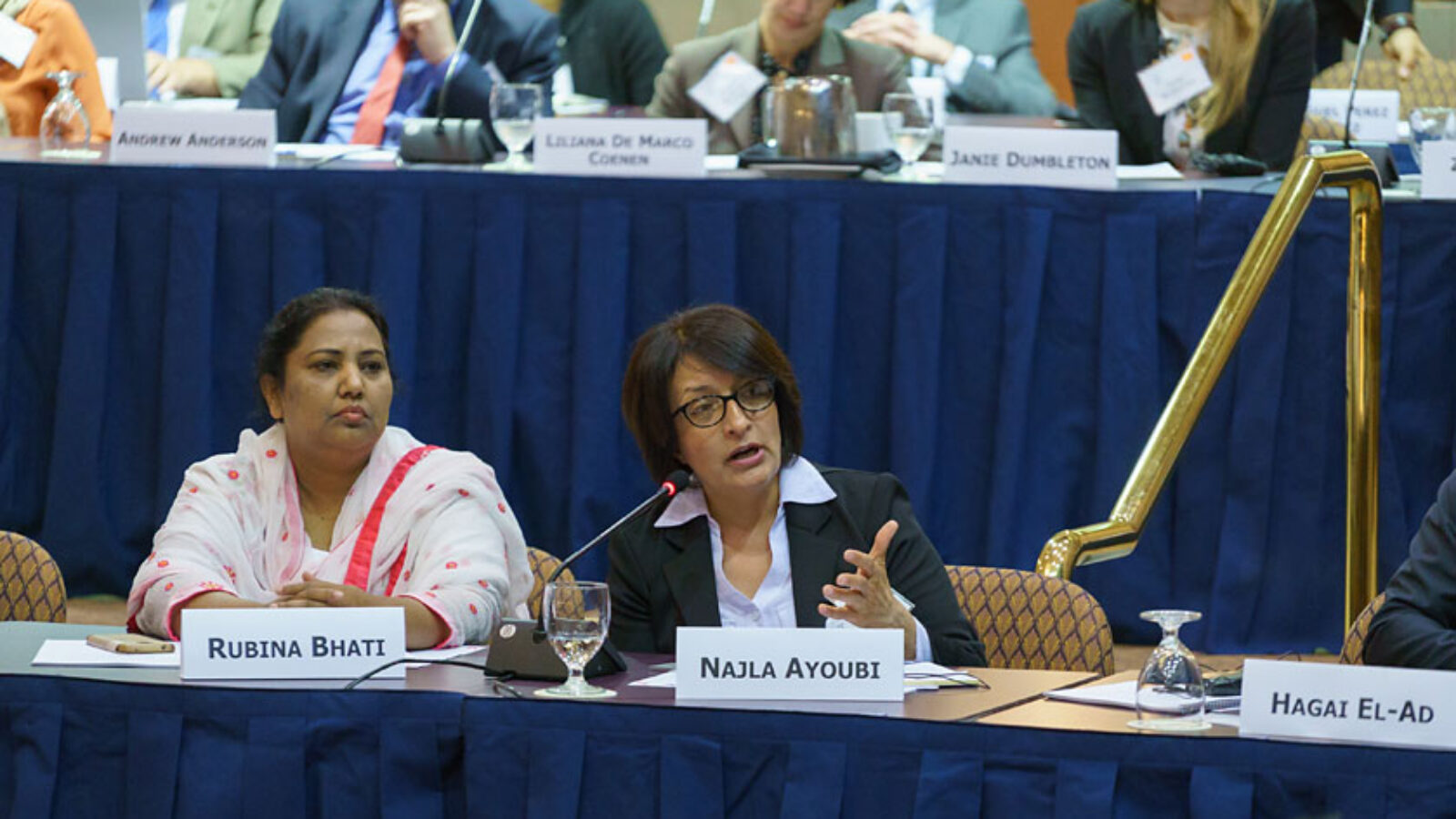Ousted Afghan Judge Fights Extremism with Empathy, Respect
Before the Taliban, before the war, before women were banned from positions of power, Najla Ayubi was a judge in Afghanistan. Extremists forced her out of her courtroom and eventually out of her country.
Her response to this injustice is not rage and retribution, it’s empathy and action. Ayubi, a founding board member of Women’s Regional Network (Afghanistan-Pakistan-India), believes in the power of respect to promote reconciliation.
“Respect from human to human — we are losing that value in the world,” she said during the 2017 Human Rights Defenders Forum in May at The Carter Center in Atlanta. “We have to open the veil between ourselves and the people we don’t like or who don’t like us.”
Extremists aren’t all merely evil, she said. Many are simply trapped.
“Most of the people who join these extremist groups do so because they are poor,” Ayubi said. “They don’t have a choice to move from their villages or communities to go somewhere else or start doing something else instead of joining these groups.”
Understanding the circumstances could help head off trouble, she suggested.
“If we can reach out to the families of these extremists — they’re human also,” she said. “Surely as humans we may have something in common through which we can find a way to prevent this extremism, because as it is we are reacting to extremism, not preventing it.”
While religious extremism tends to grab most of the headlines, other forces are at work as well, Ayubi said.
“It’s not just religion,” she said. “In my country there is religious extremism, there is ethnic extremism, there is language extremism. All of these are related to the identity of the people. When you attack the identity of people, you destroy respect.”
Maintaining respect for people’s identities and listening to their grievances can keep frustration from boiling over into extremism and violence, Ayubi said.
“It’s important to talk to our enemies,” she said. “When you talk to them, you try to learn what they are fighting for. I’m not saying we should support them, but we do need to hear them: ‘What is the cause? I’m sorry. Why are you so angry?’ Maybe they are lacking power. Maybe they are unable to find their spaces in our society.”
Ayubi fully acknowledges that there are unsavory people who lust for power and are willing to manipulate others to attain it. She believes robust education and communication can help prevent those people from exerting influence over younger generations.
“Because we have been in war in Afghanistan for almost 40 years, you see the education sector has been destroyed — infrastructure, everything,” she said. “It takes time to go from being so totally destroyed to develop or grow. But if we respect each other, and if we can do something about corruption in government and lack of leadership, and if we pursue the motivation to live together and promote cultural tolerance, many of our challenges will be solved.”
Global Impact Starts with You
Your support sustains the Carter Center's mission of waging peace, fighting disease, and building hope around the world.


